Active listening is focusing completely on both what a client is saying and is not saying within the context of who they are to gain …
Evaluating CC5 Active Listening
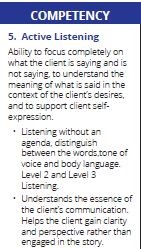
Center for Coaching Certification

Active listening is focusing completely on both what a client is saying and is not saying within the context of who they are to gain …
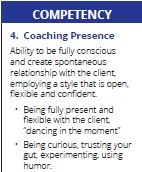
Being open, flexible, and confident while fully conscious of the client is the coaching competency of presence. It includes being curious, trusting your instincts, experimenting, …
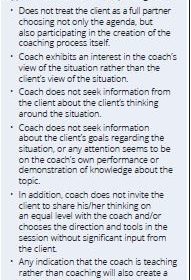
Because the number one indicator of success in a coaching relationship is the rapport between the coach and the client, this coaching competency of establishing …
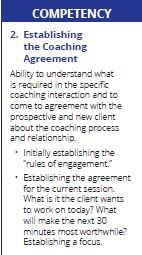
Establishing the coaching agreement includes both an initial agreement for the coaching relationship and an agreement at the beginning of each session as to what …
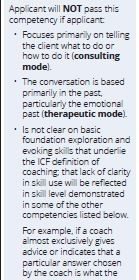
In the ICF Comparison Table, the only competency that is not directly evaluated during an oral exam for credentialing is Ethics and Standards. At the …
The ICF published a comparison table on their website that provides excellent awareness of the coaching competencies from the perspective of skill development. Specifically, it …

Learning and developing coaching competencies is foundational for being a coach. On it’s surface, it demonstrates a respect for the work and for professionalism. More …

After learning coaching competencies, planning for continuing education supports retaining, applying, and enhancing what you learned. Training reinforces what you are doing right, reminds you …

One fun, inexpensive way to further develop coaching competencies is self-directed study. There are a myriad of resources available to support ongoing learning. Coaching is …

Coaches are advocates of coaching – after all that is the reason they are doing the work. The old expression “what is good for the …